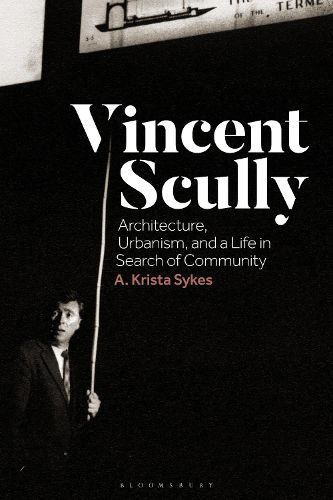Readings Newsletter
Become a Readings Member to make your shopping experience even easier.
Sign in or sign up for free!
You’re not far away from qualifying for FREE standard shipping within Australia
You’ve qualified for FREE standard shipping within Australia
The cart is loading…






The renowned architectural historian and critic, beloved Yale professor, and outspoken public activist Vincent Scully (1920-2017) emerged in the 1950s as a guiding voice in American architecture. This intellectual biography of Scully's life and career traces the formative moments in his thinking, mapping his relationships with a constellation of architects, artists, and cultural personalities of the past one hundred years.
Scully charted an unlikely course from postwar modernism to postmodernism and New Urbanism, overturning outdated beliefs and changing the face of the built environment as he went. A teacher for more than 60 years and a figure of immense importance in the field, he was central to an expansive network of associations, from Frank Lloyd Wright, Louis Kahn, and Robert Venturi to Robert Stern, Harold Bloom, and Norman Mailer.
Scully's extensive body of work, with its range spanning centuries and civilizations, coalesced around the core beliefs that architecture shapes and is shaped by society, and that the best architecture responds, above all else, to the human need for community and connection. This timely appraisal provides a platform for reassessing the legacy of these values as well as how we write and think about architecture in the twenty-first century.
$9.00 standard shipping within Australia
FREE standard shipping within Australia for orders over $100.00
Express & International shipping calculated at checkout
The renowned architectural historian and critic, beloved Yale professor, and outspoken public activist Vincent Scully (1920-2017) emerged in the 1950s as a guiding voice in American architecture. This intellectual biography of Scully's life and career traces the formative moments in his thinking, mapping his relationships with a constellation of architects, artists, and cultural personalities of the past one hundred years.
Scully charted an unlikely course from postwar modernism to postmodernism and New Urbanism, overturning outdated beliefs and changing the face of the built environment as he went. A teacher for more than 60 years and a figure of immense importance in the field, he was central to an expansive network of associations, from Frank Lloyd Wright, Louis Kahn, and Robert Venturi to Robert Stern, Harold Bloom, and Norman Mailer.
Scully's extensive body of work, with its range spanning centuries and civilizations, coalesced around the core beliefs that architecture shapes and is shaped by society, and that the best architecture responds, above all else, to the human need for community and connection. This timely appraisal provides a platform for reassessing the legacy of these values as well as how we write and think about architecture in the twenty-first century.